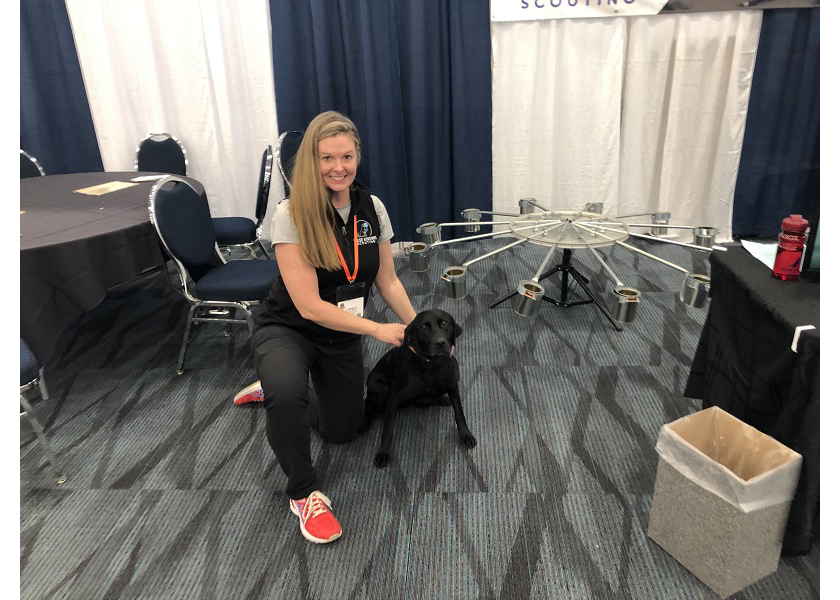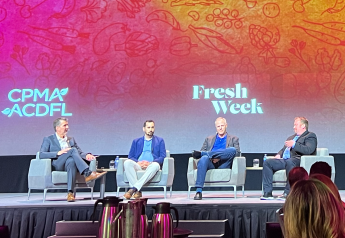Company has dogs nosing around for potato pathogens

ANAHEIM, Calif.- The latest crop protection tool is man’s best friend.
Nose Knows Scouting is deploying dogs to help potato grower identify potato virus Y and bacterial ring rot in their fields and storages.
The company exhibited at the Jan. 5-6 Potato Expo in Anaheim, using a black Labrador retriever to identify PVY in a revolving wheel of cans on the show floor.
Nose Knows Scouting dogs can detect the disease from two days post-inoculation until complete destruction of the material, according to the company, and the PVY dogs have been deployed in commercial applications for two years.
Dogs are commonly used to sniff out drugs, bombs and even COVID-19, and canines deliver fast, high volume and accurate results, according to the company.
Andrea Parish, founder of Nose, created the company and trained the dogs to initially find PVY and has since expanded pest detection to include BRR. The business mainly operates in the U.S., and covers most states, Parish said.
When she started her business, Parish said she was unaware of anyone who used dogs to detect crop pathogens, but she has since learned that researchers had started working with dogs to identify citrus greening.
“I did not know the dogs would be able to identify the pathogen. I had an educated guess they could, so I went for it,” she said.
Steve Colburn, trainer, said his background is training and running the dogs, having previously worked with dogs in military law enforcement.
Dogs can be trained with positive reward training to identify the pathogens. The trained dogs can identify PVY in fields, on equipment and within storage facilities via airways in the facility.
Parish said dogs and handlers work and are certified as a team to identify particular odors and are recertified annually.
The dogs can analyze mail-in samples at $5 per PVY sample and $10 for BRR. For farm scouting, the cost is $1,000 for a PVY team and $1,500 for a BRR team, excluding travel expenses, according to the company’s website.
There also are ways a group of growers in a region can come together to share the cost of the dogs for a period of several days, Parish said.







